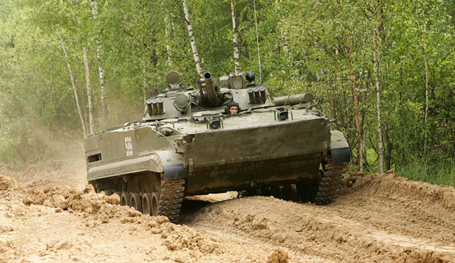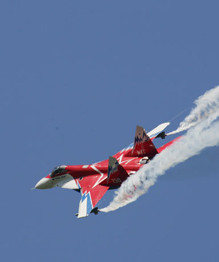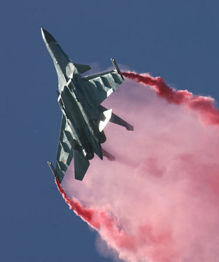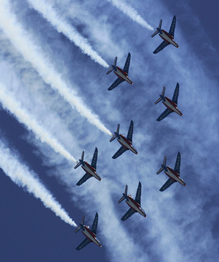Battle of Berlin
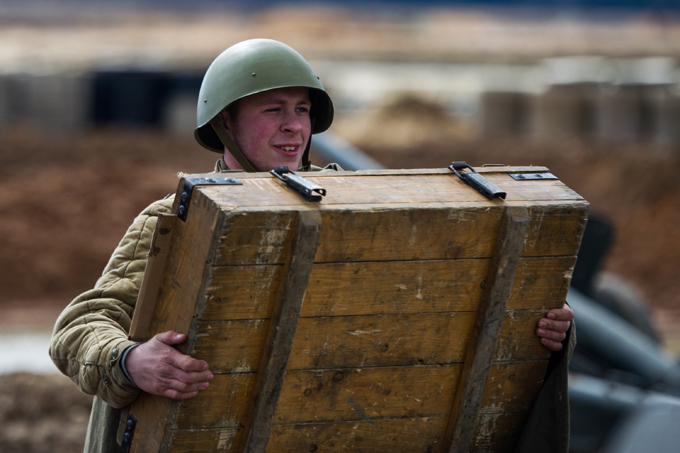
The historical reconstruction of the offensive operation of the Red Army and the storm of Reichstag was staged in "Patrior" park near Moscow. Russian Defense Minister Sergei Shoigu attended the event, the press service of the Defense Ministry said
The historical reconstruction of the offensive operation of the Red Army and the storm of Reichstag was staged in "Patrior" park near Moscow. Russian Defense Minister Sergei Shoigu attended the event, the press service of the Defense Ministry said
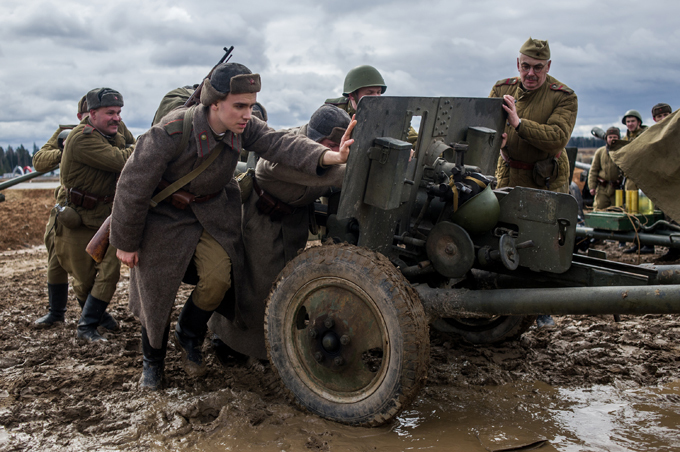
The Battle of Berlin, designated the Berlin Strategic Offensive Operation by the Soviet Union, was the final major offensive of the European theatre of World War II. Following the Vistula-Oder Offensive of January-February 1945, the Red Army had temporarily halted on a line 60 km (37 mi) east of Berlin. On 9 March, Germany established its defence plan for the city with Operation Clausewitz.
The photo provided by Defense Ministry
The Battle of Berlin, designated the Berlin Strategic Offensive Operation by the Soviet Union, was the final major offensive of the European theatre of World War II. Following the Vistula-Oder Offensive of January-February 1945, the Red Army had temporarily halted on a line 60 km (37 mi) east of Berlin. On 9 March, Germany established its defence plan for the city with Operation Clausewitz.
The photo provided by Defense Ministry
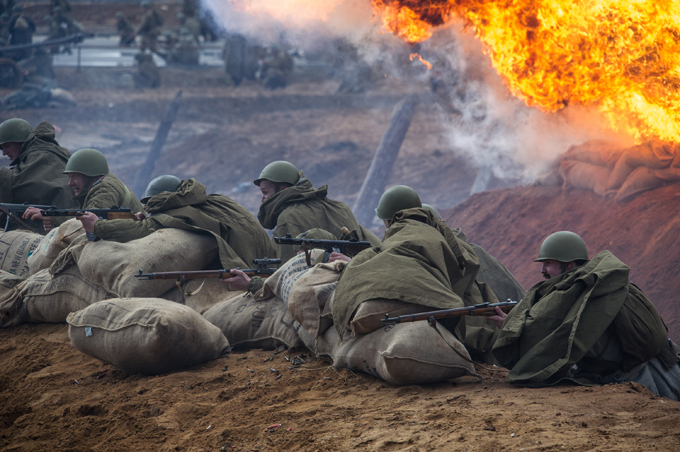
When the Soviet offensive resumed on 16 April, two Soviet fronts (army groups) attacked Berlin from the east and south, while a third overran German forces positioned north of Berlin. Before the main battle in Berlin commenced, the Red Army encircled the city after successful battles of the Seelow Heights and Halbe
When the Soviet offensive resumed on 16 April, two Soviet fronts (army groups) attacked Berlin from the east and south, while a third overran German forces positioned north of Berlin. Before the main battle in Berlin commenced, the Red Army encircled the city after successful battles of the Seelow Heights and Halbe
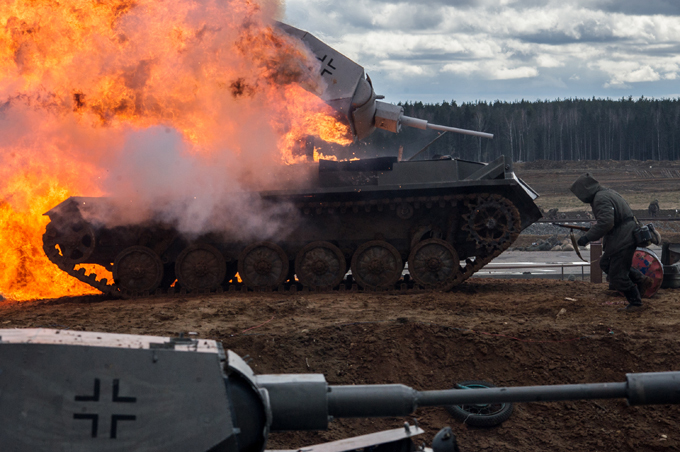
On 20 April 1945, Hitler's birthday, the 1st Belorussian Front led by Marshal Georgy Zhukov, advancing from the east and north, started shelling Berlin's city centre, while Marshal Ivan Konev's 1st Ukrainian Front broke through Army Group Centre and advanced towards the southern suburbs of Berlin
On 20 April 1945, Hitler's birthday, the 1st Belorussian Front led by Marshal Georgy Zhukov, advancing from the east and north, started shelling Berlin's city centre, while Marshal Ivan Konev's 1st Ukrainian Front broke through Army Group Centre and advanced towards the southern suburbs of Berlin
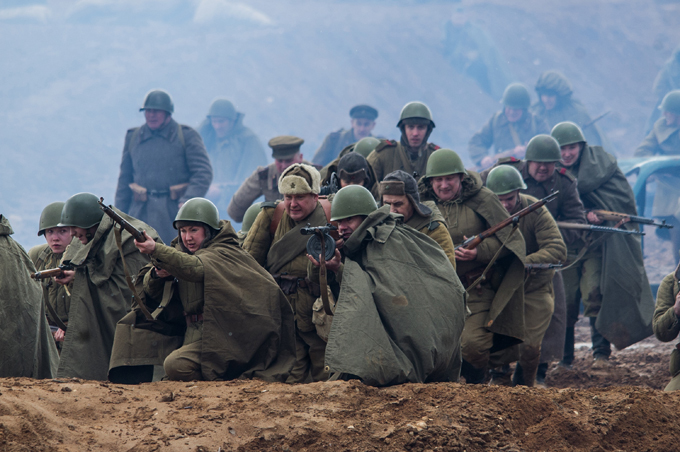
On 23 April General Helmuth Weidling assumed command of the forces within Berlin. The garrison consisted of several depleted and disorganized Wehrmacht and Waffen-SS divisions, along with poorly trained Volkssturm and Hitler Youth members. Over the course of the next week, the Red Army gradually took the entire city
On 23 April General Helmuth Weidling assumed command of the forces within Berlin. The garrison consisted of several depleted and disorganized Wehrmacht and Waffen-SS divisions, along with poorly trained Volkssturm and Hitler Youth members. Over the course of the next week, the Red Army gradually took the entire city
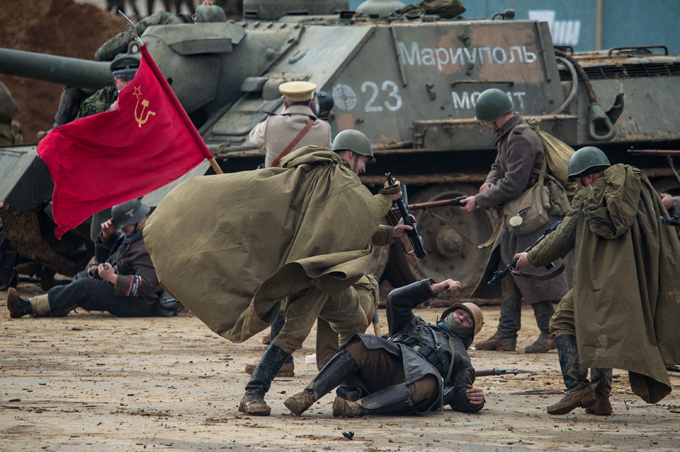
Before the battle was over, Hitler and a number of his followers committed suicide. The city's garrison surrendered on 2 May; however, fighting continued to the north-west, west, and south-west of the city until the end of the war in Europe on 8 May (9 May in the Soviet Union) as some German units fought westward so that they could surrender to the Western Allies rather than to the Soviets
Before the battle was over, Hitler and a number of his followers committed suicide. The city's garrison surrendered on 2 May; however, fighting continued to the north-west, west, and south-west of the city until the end of the war in Europe on 8 May (9 May in the Soviet Union) as some German units fought westward so that they could surrender to the Western Allies rather than to the Soviets
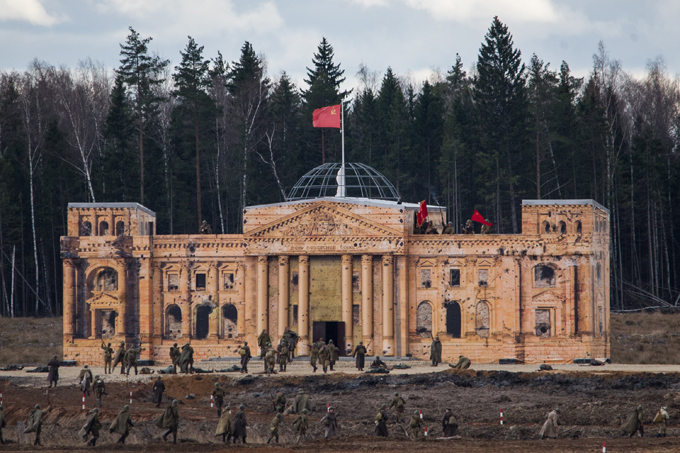
On 20 April 1945, Hitler's 56th birthday, Soviet artillery of the 1st Belorussian Front began shelling Berlin and did not stop until the city surrendered
On 20 April 1945, Hitler's 56th birthday, Soviet artillery of the 1st Belorussian Front began shelling Berlin and did not stop until the city surrendered
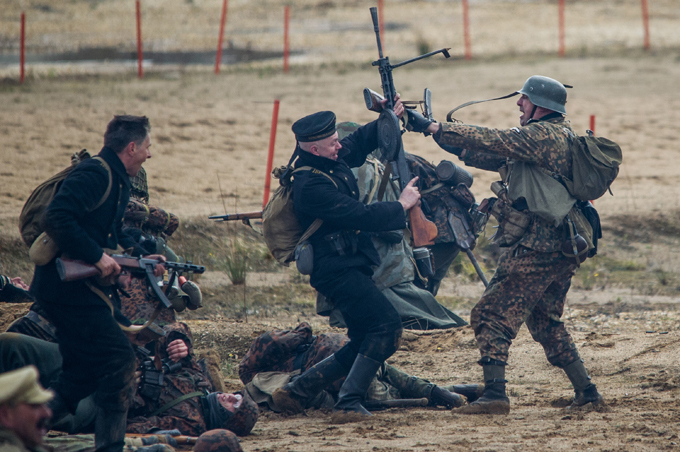
The weight of ordnance delivered by Soviet artillery during the battle was greater than the total tonnage dropped by Western Allied bombers on the city
The weight of ordnance delivered by Soviet artillery during the battle was greater than the total tonnage dropped by Western Allied bombers on the city
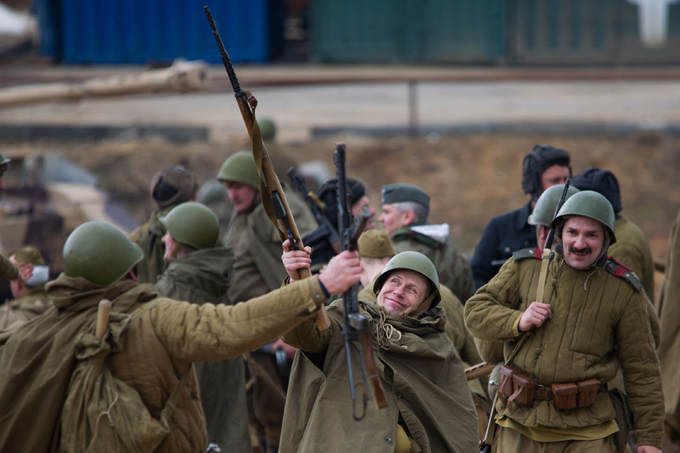
In the early hours of 29 April the Soviet 3rd Shock Army crossed the Moltke bridge and started to fan out into the surrounding streets and buildings.The initial assaults on buildings, including the Ministry of the Interior, were hampered by the lack of supporting artillery. It was not until the damaged bridges were repaired that artillery could be moved up in support.At 04:00 hours, in the Führerbunker, Hitler signed his last will and testament and, shortly afterwards, married Eva Braun
In the early hours of 29 April the Soviet 3rd Shock Army crossed the Moltke bridge and started to fan out into the surrounding streets and buildings.The initial assaults on buildings, including the Ministry of the Interior, were hampered by the lack of supporting artillery. It was not until the damaged bridges were repaired that artillery could be moved up in support.At 04:00 hours, in the Führerbunker, Hitler signed his last will and testament and, shortly afterwards, married Eva Braun

At dawn the Soviets pressed on with their assault in the south-east. After very heavy fighting they managed to capture Gestapo headquarters on Prinz-Albrechtstrasse, but a Waffen-SS counter-attack forced the Soviets to withdraw from the building. To the south-west the 8th Guards Army attacked north across the Landwehr canal into the Tiergarten
At dawn the Soviets pressed on with their assault in the south-east. After very heavy fighting they managed to capture Gestapo headquarters on Prinz-Albrechtstrasse, but a Waffen-SS counter-attack forced the Soviets to withdraw from the building. To the south-west the 8th Guards Army attacked north across the Landwehr canal into the Tiergarten
